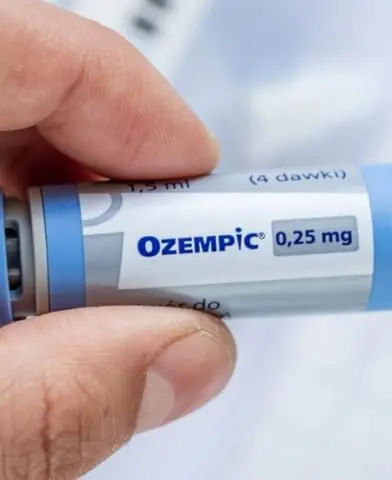
Gene Testing For Mental Health Explained
Clinically Reviewed by:
Gene testing for mental health is a groundbreaking field at the intersection of genetics and psychiatry, offering insights into the genetic basis of mental disorders. This revolutionary approach involves analyzing an individual’s DNA to identify specific genetic variations associated with conditions such as depression, anxiety, schizophrenia, and bipolar disorder.
By understanding these genetic factors, clinicians can tailor personalized treatment plans, predict risk levels, and enhance the effectiveness of interventions.

Key Takeaways
Genetic testing for mental health is a complex and evolving field with potential benefits and considerations. Here’s what you need to know:
- Gene testing for mental health offers insights into potential genetic factors contributing to mental disorders.
- Testing helps identify individuals who may be at higher risk for certain mental health disorders based on their genetic makeup.
- Utilizing gene testing can guide treatment decisions and interventions for better management of mental health conditions.
Indiana Center for Recovery is one of few providers in the country to offer GeneSight genetic testing. Call (844) 650-0064 to learn more.
How Gene Testing For Mental Health Works
Gene testing for mental health involves analyzing an individual’s DNA to identify genetic variations associated with mental illnesses such as depression, schizophrenia, and bipolar disorder. This testing can provide insights into a person’s genetic predisposition to certain conditions, allowing for personalized treatment approaches.
It may also aid in early detection, risk assessment, and medication selection, ultimately improving patient outcomes. However, it’s important to note that genetic testing is just one tool in mental health assessment and should be used in conjunction with clinical evaluation and other diagnostic methods.
Science Behind Gene Testing
Gene testing begins with a sample collection from the individual undergoing testing, usually saliva or blood. This sample contains DNA that holds the genetic information. Scientists then extract the DNA from the sample and analyze it using various techniques.
One common method is sequencing, where the order of the DNA’s building blocks, nucleotides, is determined. This allows scientists to identify any changes or mutations in the DNA sequence. Another method, known as PCR (polymerase chain reaction), amplifies specific DNA regions to make them easier to study.
Once the DNA is analyzed, the results are interpreted to determine if genetic variations are associated with specific diseases or conditions. Genetic counselors or healthcare providers often help individuals understand their results and make informed decisions about their health.
Advancements In Gene Testing Technologies
Technological advances have transformed gene testing, making it faster, more accurate, and easier to access. One big leap forward is next-generation sequencing (NGS), which quickly reads large amounts of DNA. This has slashed the time and cost of gene testing, making it available to more people.
Another improvement is targeted gene panels, which focus on specific genes or areas of interest. This approach reduces finding unrelated results, making the process more precise. Additionally, progress in bioinformatics, merging biology and computer science, has enhanced our ability to analyze genetic data.
This means more reliable and personalized results for patients getting gene tests.
Gene Testing For Specific Mental Disorders
Gene testing for specific mental disorders, such as schizophrenia, bipolar disorder, or depression, is an area of ongoing research and development in the field of psychiatric genetics. While there has been significant progress in understanding the genetic basis of these disorders, gene testing for mental disorders is not yet commonly used in clinical practice.
Gene Testing For Depression
Depression gene testing helps identify genetic factors contributing to depression. It involves analyzing DNA samples to detect variations linked with the risk of developing depression. Results can guide personalized treatment plans for better management.
Gene Testing For Bipolar Disorder
Gene testing for bipolar disorder examines genetic markers associated with the condition. By analyzing DNA, it identifies genetic predispositions to bipolar disorder. Understanding genetic influences can aid in early intervention and tailored treatment approaches.
Gene Testing For Schizophrenia
Schizophrenia gene testing assesses genetic components contributing to schizophrenia risk. Through DNA analysis, specific genetic variations linked with the disorder are identified. Early detection through genetic testing can facilitate timely interventions and personalized treatment strategies.
Gene Testing For Anxiety Disorders
Anxiety disorders gene testing examines genetic factors influencing anxiety susceptibility. DNA analysis reveals genetic variations associated with different anxiety disorders. Understanding genetic predispositions can assist in devising personalized treatment plans and interventions.
Benefits of Gene Testing For Mental Health
Gene testing for mental health, also known as genetic testing or psychiatric genetic testing, involves analyzing an individual’s genetic makeup to identify variations or mutations that may contribute to their mental health conditions or predispositions.
Here are several potential benefits of gene testing for mental health:
Personalized Treatment Plans
Gene testing for mental health allows doctors to create personalized treatment plans. These plans are tailored to each individual’s genetic makeup. Doctors can prescribe the most effective drugs and therapies by understanding a person’s genetic predispositions.
Early Diagnosis And Prevention
Gene testing can help in the early diagnosis and prevention of mental health disorders. Individuals can take proactive measures to prevent the onset of these disorders by identifying genetic markers associated with certain conditions.
Early intervention can significantly improve outcomes and quality of life.
Enhance Understanding Of Mental Health Disorders
Gene testing enhances our understanding of mental health disorders. Researchers gain insights into the biological mechanisms underlying these conditions by studying the genetic factors involved. This knowledge can lead to the development of better treatments and interventions.
Reduce Stigma Around Mental Illness
Gene testing for mental health can help reduce the stigma surrounding mental illness. By emphasizing the biological basis of these disorders, people may better understand and empathize with those affected.
This can foster a more supportive and inclusive environment for individuals struggling with mental health issues.
Risks and Challenges In Gene Testing For Mental Health
Gene testing for mental health poses several risks and challenges, both ethical and practical.
Here are some key considerations:
Interpretation Errors
Gene testing for mental health poses risks due to interpretation errors. Sometimes, scientists might misinterpret the results, leading to incorrect conclusions about a person’s mental health. These errors can have serious consequences, such as unnecessary treatments or incorrect diagnoses.
Ethical Concerns
There are ethical concerns surrounding gene testing for mental health. Some worry that using genetic information to predict mental health conditions could lead to discrimination or stigmatization.
Additionally, there are concerns about consent and the potential psychological impact on individuals who receive genetic testing results.
Privacy And Discrimination Risks
Privacy is a concern in gene testing for mental health. People worry that their genetic information could be accessed without consent, leading to privacy breaches. Furthermore, there are fears of discrimination based on genetic predispositions to mental health conditions.
Employers or insurers might discriminate against individuals based on their genetic makeup, leading to unfair treatment.
Future Of Gene Testing In Mental Health
Gene testing in mental health holds immense potential for revolutionizing diagnosis and treatment. As research progresses, scientists are uncovering the intricate relationship between genetics and psychiatric disorders. This understanding opens doors to more effective interventions tailored to individuals’ genetic profiles.
With ongoing advancements, gene testing is poised to become a cornerstone of mental health care, offering hope for better outcomes and improved quality of life for those affected by such conditions.
Latest Research And Developments
Recent studies show promising advancements in gene testing for mental health. Scientists have identified specific genetic markers linked to various psychiatric disorders such as depression, schizophrenia, and bipolar disorder.
These findings pave the way for more accurate diagnosis and personalized treatment approaches.
Predicted Trends And Evolutions In The Field
In the coming years, gene testing in mental health is expected to become more accessible and affordable. With ongoing research, experts anticipate the development of comprehensive gene panels capable of assessing multiple genetic factors simultaneously.
This will enable clinicians to understand better the genetic basis of mental illnesses and tailor interventions accordingly.
Role of AI And Machine Learning
AI and machine learning are revolutionizing gene testing in mental health. These technologies can analyze vast amounts of genetic data quickly and accurately, leading to more precise diagnoses and treatment recommendations.
Additionally, AI-powered algorithms can identify complex patterns within genetic information that humans might overlook, enhancing our understanding of how key genes contribute to mental health disorders.
Frequently Asked Questions (FAQ)
Genetic testing can find some genetic markers linked to mental illness, but it can’t fully diagnose these disorders alone. Mental illnesses come from a mix of genetics, environment, and social factors. While genetic testing can show if someone might be more likely to have certain conditions, it’s only part of the diagnosis.
Doctors need to look at other things, too, like how someone is feeling and acting, to understand their mental health.
A psychiatrist may order genetic testing, such as the GeneSight test, to assess how a patient’s body metabolizes psychiatric medications. Test results can guide treatment decisions, minimizing adverse effects and optimizing medication outcomes.
This pharmacogenomic testing can identify gene variations influencing medication response, potentially reducing the risk of negative side effects.
Genetic counseling may accompany the testing process, aiding in treatment plans. In recent years, pharmacogenomic tests have gained recognition in psychiatric care, supported by research and clinical trials, with some insurance companies offering coverage or financial assistance.
Certain mental health disorders, like depression and anxiety, ADHD, and major depressive disorder, can have a genetic component. Gene variations influence response to antidepressants and other mental health medications.
Pharmacogenomic tests, like GeneSight, analyze genetic makeup to guide treatment plans. Research and reports by the National Institute of Mental Health and FDA-approved clinical trials support using genetic tests. Insurance companies may cover costs, and financial assistance options exist for those at higher risk.






 100% Confidential
100% Confidential